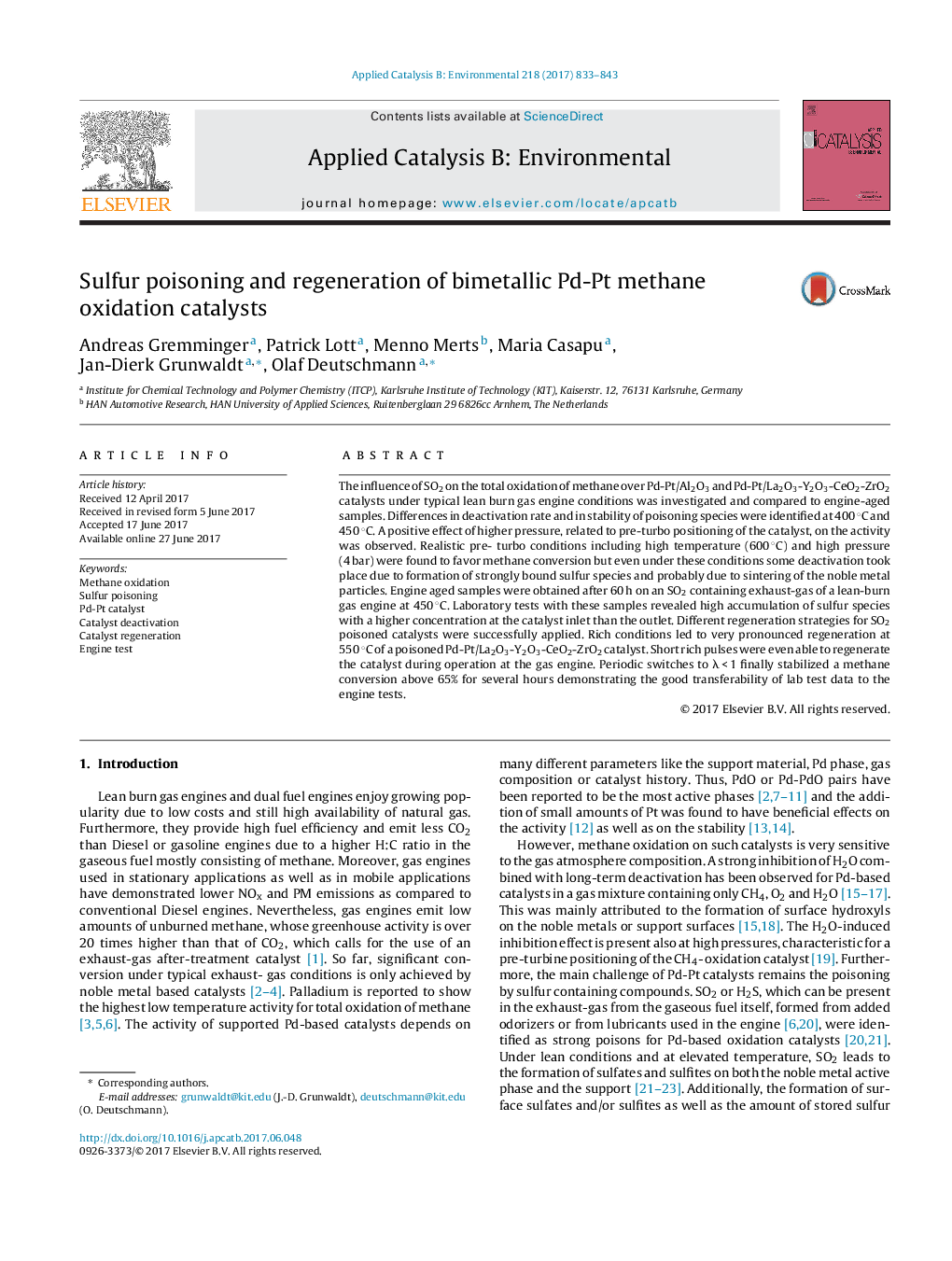| Article ID | Journal | Published Year | Pages | File Type |
|---|---|---|---|---|
| 6453864 | Applied Catalysis B: Environmental | 2017 | 11 Pages |
â¢Rapid deactivation of Pd based catalysts due to generation of sulfates.â¢Pre-turbo positioning enhances activity due to higher temperature.â¢Rich treatment at higher temperature regenerates SO2 poisoned catalysts.â¢Regeneration was successfully demonstrated during operation on lean-burn gas engine by changing to λ < 1.
The influence of SO2 on the total oxidation of methane over Pd-Pt/Al2O3 and PdâPt/La2O3âY2O3âCeO2-ZrO2 catalysts under typical lean burn gas engine conditions was investigated and compared to engine-aged samples. Differences in deactivation rate and in stability of poisoning species were identified at 400 °C and 450 °C. A positive effect of higher pressure, related to pre-turbo positioning of the catalyst, on the activity was observed. Realistic pre- turbo conditions including high temperature (600 °C) and high pressure (4 bar) were found to favor methane conversion but even under these conditions some deactivation took place due to formation of strongly bound sulfur species and probably due to sintering of the noble metal particles. Engine aged samples were obtained after 60 h on an SO2 containing exhaust-gas of a leanâburn gas engine at 450 °C. Laboratory tests with these samples revealed high accumulation of sulfur species with a higher concentration at the catalyst inlet than the outlet. Different regeneration strategies for SO2 poisoned catalysts were successfully applied. Rich conditions led to very pronounced regeneration at 550 °C of a poisoned PdâPt/La2O3âY2O3âCeO2-ZrO2 catalyst. Short rich pulses were even able to regenerate the catalyst during operation at the gas engine. Periodic switches to λ < 1 finally stabilized a methane conversion above 65% for several hours demonstrating the good transferability of lab test data to the engine tests.
Graphical abstractDownload high-res image (83KB)Download full-size image
